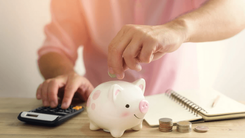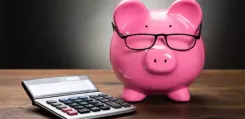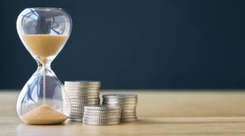Debt is one of the biggest problems facing many people today. In an increasingly consumer-driven world, it can be tempting to spend more than we can afford, and that can lead to an endless cycle of interest payments and fees.
To get out of debt and regain control of your personal finances, it's critical to have an effective strategy. In this article, we'll provide you with some practical tips to help eliminate your debt and start building a solid, stable financial future.
Facing Financial Reality
Before beginning any strategy to get out of debt, it is important to face the financial reality and understand where you stand. This involves doing a detailed analysis of monthly income and expenses, identifying debts and their interest rates, as well as evaluating consumption habits.
It is common to feel fear or anxiety when confronting the financial situation, but this is a crucial stage to be able to make informed decisions. Once you have a clear understanding of your financial situation, you can design effective plans to reduce expenses, increase income and pay off debts.
Analyze and categorize debts
Before beginning any plan to get out of debt, it is necessary to analyze and categorize all debts you currently have. This will allow you to have a clear and detailed view of your financial situation.
It is important to separate debts into different categories, such as:
- Priority debts: those that have a high interest rate and are necessary to maintain the quality of life, such as a mortgage or car loan.
- Secondary debts: those that have a medium interest rate and are not essential for day-to-day living, such as credit cards.
- Minor debts: those that have a low interest rate and can be paid off quickly, such as installment purchases.
Once debts have been categorized, it is important to establish a plan to pay them in priority order. Focusing on paying off debts with higher interest rates first will save money in the long run.
It is also necessary to create a monthly budget to control expenses and be able to allocate a fixed amount to pay off debts each month. This budget should be realistic and adjusted to the current financial situation. Analyzing and categorizing debts is the first step to get out of debt. With a good plan and discipline, it is possible to achieve financial freedom.
Establishing a budget and payment plan
To get out of debt, it is essential to establish a budget and a payment plan. First, make a detailed list of all debts, specifying the amount, interest rate and payment term. Then, the monthly income and expenses should be carefully analyzed to determine how much can be allocated to debt repayment. It is important to make sure that the payment plan is realistic and sustainable over time.
Once the budget and payment plan are established, it is essential to stick to them. This involves making sacrifices in other non-essential expenses in order to allocate more money to debt repayment. In addition, it is recommended to prioritize paying off debts with higher interest rates. In summary, establishing a budget and a payment plan is essential to effectively get out of debt. It requires discipline, consistency and commitment to reach the desired goal.
Reduce expenses and increase income
The key to getting out of debt is to find the balance between reducing expenses and increasing income. Here are some effective strategies to achieve this:
- Sell what you don't need: Make a list of everything you have at home that you don't really use. Sell it online or at a garage sale to earn extra money.
- Change your spending habits: Look for ways to save on your everyday purchases, such as buying generic or bulk products.
- Save on utilities: Analyze your monthly bills and look for ways to save on utilities such as cable, internet or phone.
- Look for additional sources of income: Consider freelance work, selling handmade products or renting an extra room in your home.
Remember that it's important to budget and adjust regularly to make sure you're following your financial plan and reaching your goals.
Maintain financial discipline and avoid falling back into debt.
Once you have gotten out of debt, it is important to maintain financial discipline to avoid falling back into the same situation. To do so, we recommend following these tips:
- Establish a monthly budget and stick to it.
- Avoid unnecessary expenses
- Pay your bills on time to avoid interest charges and additional expenses.
- Do not take out unnecessary loans or credit cards with high limits.
- Consider saving a portion of your monthly income for emergencies or future long-term projects.
Remember that maintaining financial discipline is not easy, but it is fundamental to maintain an economic balance and avoid falling into difficult situations again. Always keep control over your expenses and avoid unnecessary financial temptations.











